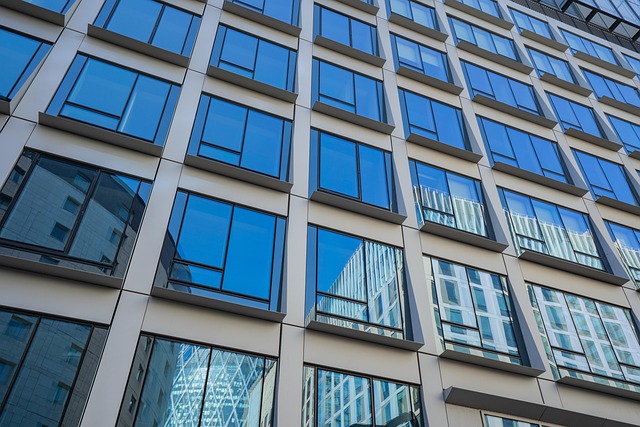Electric combination boilers face challenges like corrosion and scale buildup due to hard water minerals. Regular cleaning, descaling, and corrosion-inhibiting treatments extend lifespan and enhance energy efficiency. Stainless steel's resistance makes it ideal for these systems, ensuring optimal performance in residential applications. Combi boilers offer efficient space-saving solutions with precise control and minimal waste, but proper maintenance through flushing, water quality management, and temperature monitoring is crucial for longevity.
In the realm of industrial heating, electric combination boilers have emerged as efficient powerhouses. This article delves into the remarkable resistance of stainless-steel models against corrosion and scale buildup. We explore the intricate relationship between these issues and boiler performance. By understanding the science behind corrosion and scale prevention in stainless steel, we uncover maintenance strategies ensuring longevity. Discover how these electric combination boilers navigate the challenges, enhancing their reliability in diverse applications.
- Understanding Corrosion and Scale in Boilers
- Stainless Steel: A Natural Resistance
- Electric Combination Boilers: Design and Construction
- Maintenance Strategies for Longevity
Understanding Corrosion and Scale in Boilers

Corrosion and scale buildup are common challenges faced by various types of boilers, including electric combination boilers. Corrosion refers to the degradation of metal surfaces due to chemical reactions or environmental factors, while scale is a mineral deposit that forms when hard water minerals precipitate on heated surfaces. In the context of electric combi boilers and tankless electric boilers, these issues can impact energy efficiency and overall system performance.
Electric central heating systems, particularly combination heating systems and residential electric heating solutions, are increasingly popular due to their compact boiler systems and immediate hot water delivery. However, proper maintenance is crucial to prevent corrosion and scale buildup in electric HVAC boilers and space heating systems. Regular cleaning and descaling, along with the use of corrosion-inhibiting treatments, can prolong the lifespan of these systems and ensure optimal energy efficiency in electric hot water heating applications.
Stainless Steel: A Natural Resistance

Stainless steel has long been recognized for its innate resistance to corrosion and scale buildup, making it an ideal material for electric combination boilers. This natural resilience is a significant advantage in the world of heating systems, particularly when considering the demanding conditions they often face. Electric combi boilers, known for their space-saving design and efficient heating capabilities, benefit greatly from this characteristic.
The ability to withstand corrosion prevents the formation of unsightly deposits, ensuring that these electric HVAC boilers maintain optimal performance over time. This is especially crucial in residential electric heating applications, where energy-efficient tankless electric boilers are favored for their compact boiler systems and rapid hot water delivery. By leveraging stainless steel’s natural resistance to scale, these combination heating systems offer both reliable space heating and efficient electric hot water heating.
Electric Combination Boilers: Design and Construction

Electric combination boilers, also known as combi boilers, represent a modern and compact solution for residential electric heating. Their design and construction focus on efficiency and convenience, integrating both space heating and electric hot water generation in one streamlined system. Unlike traditional tank-based central heating systems, these tankless electric boilers offer on-demand hot water, eliminating the need for large storage tanks. This not only saves valuable space but also contributes to energy efficiency, as heat is generated only when needed.
The construction of electric combi boilers involves advanced materials and technologies. Stainless steel, for instance, is a common choice due to its superior corrosion resistance and longevity. This material ensures that the boiler can withstand harsh conditions, maintaining optimal performance over extended periods. Additionally, modern combi boilers employ sophisticated heating elements and precise temperature control mechanisms, allowing for precise hot water delivery while minimizing energy wastage. These features make electric combination heating systems a popular choice among homeowners seeking both comfort and energy-efficient residential electric heating solutions.
Maintenance Strategies for Longevity

Proper maintenance is key to ensuring the longevity and optimal performance of stainless-steel electric combination boilers. Regular cleaning and inspection are essential strategies to prevent corrosion and scale buildup, which can hinder efficiency and shorten the boiler’s lifespan. A simple yet effective routine includes periodically flushing the system to remove any mineral deposits or debris that may have accumulated over time. This process involves shutting off the power supply, draining the water, and using specialized chemicals or cleaning solutions to dislodge and eliminate scale.
Additionally, maintaining a consistent water quality is vital for the health of electric combi boilers. Using soft water or implementing water treatment systems can significantly reduce mineral content, thus minimizing the risk of corrosion and scale formation. Moreover, regular monitoring of temperature settings and efficient thermostatic control ensure that the boiler operates within its optimal range, enhancing energy efficiency while prolonging the life of the tankless electric boilers or residential electric heating systems, making them reliable components of any space heating system or compact boiler systems.
Electric combination boilers, with their stainless-steel construction, offer a robust solution to the age-old issues of corrosion and scale buildup. By understanding the inherent resistance provided by stainless steel and implementing effective maintenance strategies, these boilers can deliver efficient heating and hot water for years to come. This article has explored the key factors contributing to corrosion and scale formation, highlighted the advantages of stainless steel in combat, and provided insights into the design and maintenance practices that ensure optimal performance of electric combination boilers.
